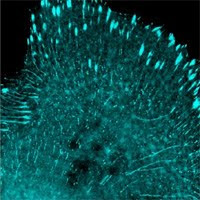The maintenance of cell, tissue, and organ from various sources in ex vivo cultures is one of the most important aspects in the bioscience, medicine, and biotechnology industries. Successful cell cultures are largely dependent on the use of fetal bovine serum (FBS) as a common supplement. FBS is an extremely complex mixture of unknown composition. It is found to provide:
1. Growth stimulating and regulating factors for cell growth, proliferation, and differentiation
2. Various protein components for cell attachment and spreading
3. Transport factors for carrying other molecules
4. BSA, antitrypsin, apolipoproteins, antitoxin factors, and other stabilizing factors
5. Vitamins, fatty acids, lipids, and others molecules that can have eff¬ects on pH, free radical scavenging [1], cell signaling, etc.
When choosing FBS, one needs to be keenly aware that the serum is a supplement of still unknown composition, which is known to have the following problems:
1. It contains ambiguous factors exerting eff¬ects on cells that are difficult to analyze [2].
2. The batch-to-batch variability complicates culture conditions and data interpretation [3].
3. It is an animal product that may contain endotoxins, hemoglobin, and factor adverse to intended use of culture.
4. It may carry contaminants such as microplasmas, fungi, bacteria, viruses, and prions.
5. The high protein contents of FBS make downstream processing of pharmaceutical production difficult and costly [4].
It is therefore important to find and test a supplier or even batches for one that works well with a particular cell type, especially when one has just started working with the cells. AlleleVaid FBS is an excellent choice for most of your cell culture needs.
References
1. Kume, T., N. Asai, H. Nishikawa, N. Mano, T. Terauchi, R. Taguchi, H. Shirakawa, F. Osakada, H. Mori, N. Asakawa, M. Yonaga, Y. Nishizawa, H. Sugimoto, S. Shimohama, H. Katsuki, S. Kaneko, and A. Akaike, Isolation of a diterpenoid substance with potent neuroprotective activity from fetal calf serum. Proc Natl Acad Sci U S A, 2002. 99(5): p. 3288-93.
2. Barnes, D., W.L. McKeehan, and G.H. Sato, Cellular endocrinology: integrated physiology in vitro. In Vitro Cell Dev Biol, 1987. 23(10): p. 659-62.
3. Ye, X. and R. Lotan, Potential misinterpretation of data on diff¬erential gene expression in normal and malignant cells in vitro. Brief Funct Genomic Proteomic, 2008. 7(4): p. 322-6.
4. Wang, Y., G. Lu, W.P. Wong, J.F. Vliegenthart, G.J. Gerwig, K.S. Lam, G.J. Cooper, and A. Xu, Proteomic and functional characterization of endogenous adiponectin purified from fetal bovine serum. Proteomics, 2004. 4(12): p. 3933-42.
Part II, work to replace FBS altogether, check back to see the post here later.
AlleleValid FBS (www.allelebiotech.com/allele3/TC_FBS.php) batches come from North American sources that Allele Biotech has access to inspect, and each batch is tested on different insect and mammalian cells in actual experiments scientists perform daily at our own facility.
Tuesday, July 14, 2009
Use of fetal bovine serum (FBS) Part I, choosing your batch
Subscribe to:
Post Comments (Atom)




No comments:
Post a Comment